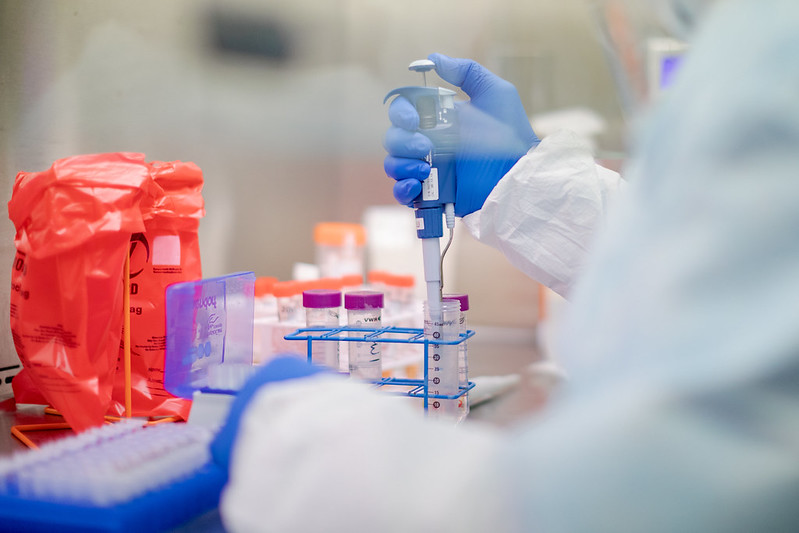A new Belgian test capable of screening the new coronavirus (Covid-19) in 15 minutes has been certified for sale and distribution, RTBF reported on Wednesday.
The test in question can detect coronavirus antigens from a nasopharyngeal sample - in other words, from a nose swab.
The test was developed by Coris BioConcept in collaboration with the university hospital laboratory of Brussels (LHUB-ULB) and other partners including the University of Liège and the national reference centre for respiratory pathogens.
Related News
- Nursing homes: a 'ticking time bomb'
- Coronavirus: ECDC warns against health care systems being overwhelmed
250 patients in three Belgian hospitals (CHU Saint-Pierre, Erasmus hospital and the Liège university hospital) were administered the test last weekend. For seven out of ten patients presenting high viral levels of coronavirus, the quick test detected the coronavirus. Based on these results, the Federal Agency for Medicine and Health Products (AFMPS) has greenlit the sale and distribution of the tests.
Leading virologist Marc Van Ranst commented on the test: "The new antigen test will certainly speed up diagnostics in hospitals, because in fifteen minutes there will be results. If the result is positive, there is certainly an infection. If the result is negative, there remains uncertainty because the sensitivity is only 70 percent. To obtain certainty, in a number of cases, such as hospitalisation, the lab test will still be carried out if the result is negative."
On their website, Coris BioConcept advertises the new test, but a ticker announcing that "the kit is only available for healthcare services."
The news comes amidst calls from various sectors and organisations including nursing homes and volunteers for the homeless to make more tests available to certain groups, as current tests are in low supply and are being used sparingly.
Jason Spinks
The Brussels Times
Update: this story has been updated to clarify the meaning of nasopharyngeal sample, and to add an additional comment by virologist Marc Van Ranst.

